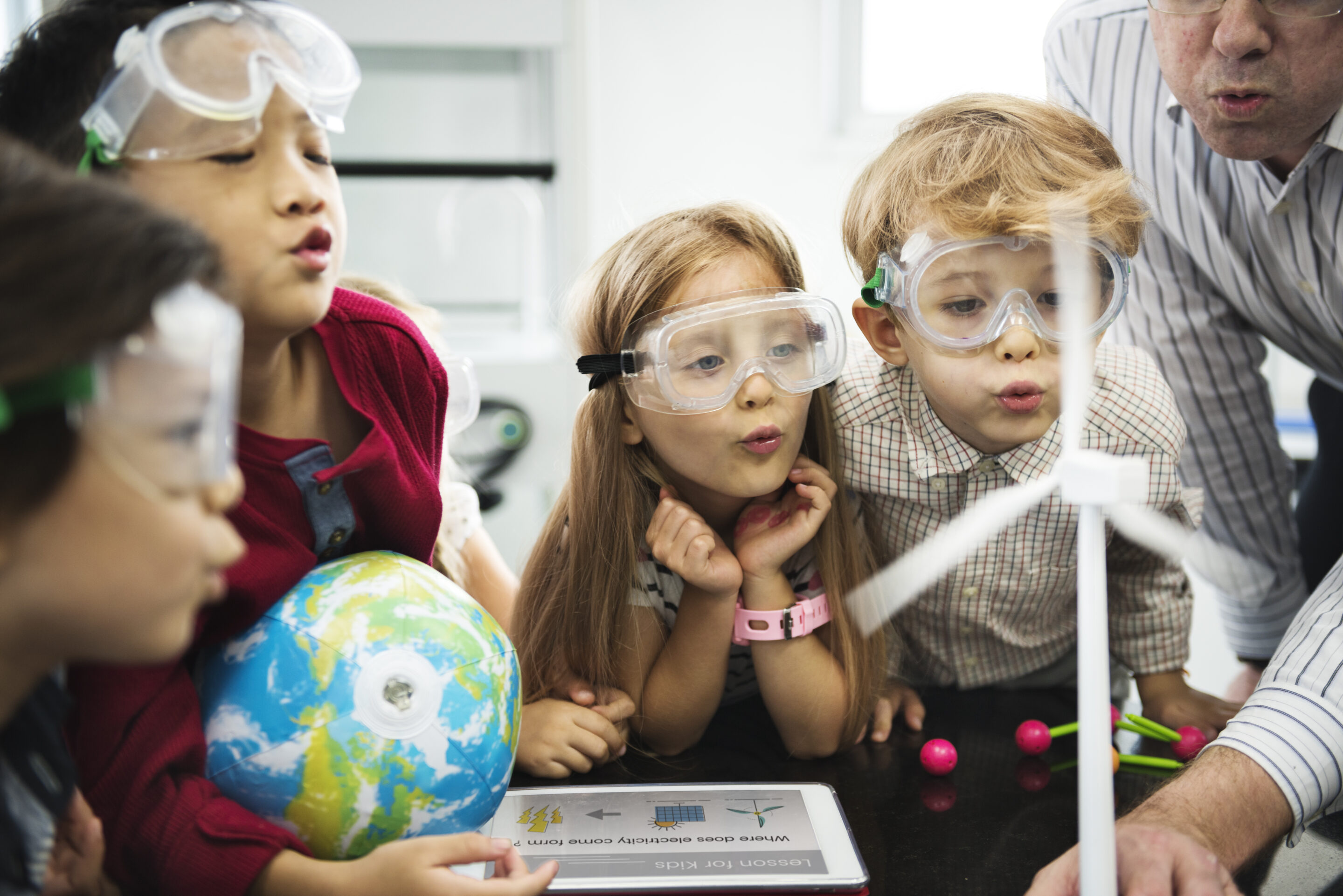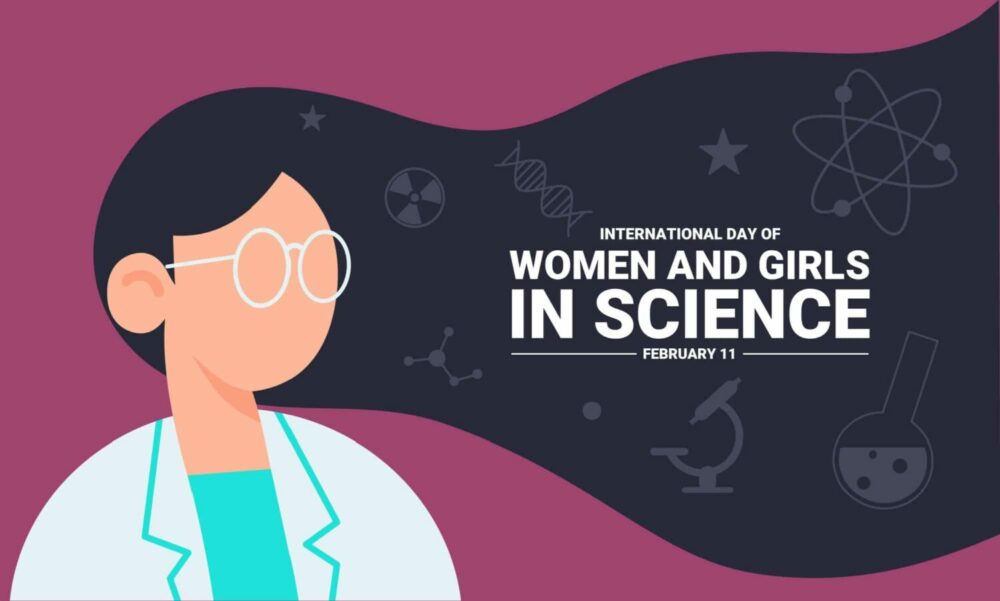The International Day of Women and Girls in Science
The International Day of Women and Girls in science is celebrated on the 11th of February every year. It is a global celebration of women who have contributed to major scientific findings. The main reason for this declaration is to encourage girls and women to take up jobs in the field of science, technology, engineering and mathematics (also known as STEM subjects). This year’s theme is Innovate. Demonstrate. Elevate. Advance. (IDEA). We have laid out ways you can celebrate in the classroom, as well as some important women in science.
Why is it important?
This day is an opportunity to promote full and equal access and participation in science for women and girls, and to encourage equality in the STEM fields. Gender equality is a global priority and supporting this starts with young girls in education. Remind your class that women and girls play an important role in science and technology communities.
Five important women in science
As teachers, you have a responsibility to help young girls become more aware of their potential in STEM. One way you can do this is by teaching pupils about important women in these fields. Here is a short list of women who, with their discoveries and expertise, have helped to shape the face of science. You may want to introduce them and their work to your pupils.
Katherine Johnson
Katherine Johnson was one of a group of female African-Amercian mathematicians who were employed by NASA in the 1950s and 1960s. She was a leading figure in space history and made ground-breaking contributions to aeronautics and space programmes.
Her work at NASA led her to play a very important role in calculating trajectories for the 1969 Apollo 11 flight to the moon.
As a major supporter of girls in STEM, she said ‘girls are capable of doing everything men are capable of doing’.
Jennifer Doudna
Jennifer Doudna, an American biologist, is one of the most significant scientists today. Alongside Emmanuelle Charpentier, she developed CRISPR, a genetic-engineering method which helps to “edit” genes.
This is a crucial development. It will help to eradicate or treat defects in cells that can cause genetic illnesses, such as Huntington’s disease and HIV.
Doudna and Charpentier shared the 2020 Nobel Prize in Chemistry for this discovery.
Segenet Kelemu
Segenet Kelemu, a molecular plant pathologist, dedicates her ground-breaking research to helping the world’s smallholder farmers grow more and rise out of poverty around the world.
She grew up in a poor farming family in Ethiopia and was the first woman from her region to get a university education. She shares “I was really determined to go to university.”
In recognition of her work, she was awarded a L’Oréal-UNESCO Award for Women in Science in 2014. She was also named one of the 100 most influential African women by Forbes Africa.
Jane Goodall
British primatologist Jane Goodall was renowned for her studies on primate science, with a focus on chimpanzees. She devoted 55 years of her life to the study of wild chimpanzees in the Gombe Stream National Park in Tanzania. She is an activist for animal rights, conservation and sustainable development.
As a child, she dreamed of working with animals in Africa. She shared that this was unthinkable at the time because ‘we didn’t have any money… and because I was a girl’. Ironically, her work in the field has inspired generations of women in science.
Vera Rubin
Vera Rubin’s work in space science has helped us to uncover some of the deepest and most mysterious secrets of the universe. She proved that dark matter, the stuff that holds the universe together, existed. This matter pulls planets and stars in certain directions and explains a lot more about how the universe came to be.
In honour of her research, President Bill Clinton awarded her the National Medal of Science in 1993.

How to encourage girls to take up STEM subjects
So how do we encourage girls to pursue STEM as a profession? We have set out some activities for your class to take part in and get them thinking.
Activities in the classroom
A great way of sparking their curiosity is by having them participate in presentations, project work and discussions in class.
One idea to try is to introduce these women to your pupils and ask them to create a project. Why not try this:
- Display pictures of the women on the board and elicit ideas from students about who they might be
- Once you have established that they are renowned scientists, you can put the class into small groups
- Give each group one woman. Ask them to research her life, work and discoveries
- Once pupils have done this, whether it’s in class or for homework, ask them to present their findings to the class.
Use STEM products in lessons
Another way to encourage women and girls in science is by using STEM products in classroom activities. Incorporate coding and programming with our Tinkerbots education expert set. This is ideal for your class to explore their imagination whilst learning the basic principles involved in engineering, design, testing and programming.
Another great product to incorporate in your science lessons is our science detective’s kits. These are perfect to get your class involved and absorb the science behind everyday activities.
Celebrate International Day of Women and Girls in science with your class. Inform your class on important women in science, as well as showing them the fun and collaborative side of STEM. And don’t just stick to teaching about this on certain dates. Integrate it in your regular lessons, and really show the importance of women and girls in science.
Show us what activities you did to celebrate women and girls in science on our Twitter and Instagram.
With International Women’s Day soon approaching, read our blog for how you can celebrate in the classroom.






